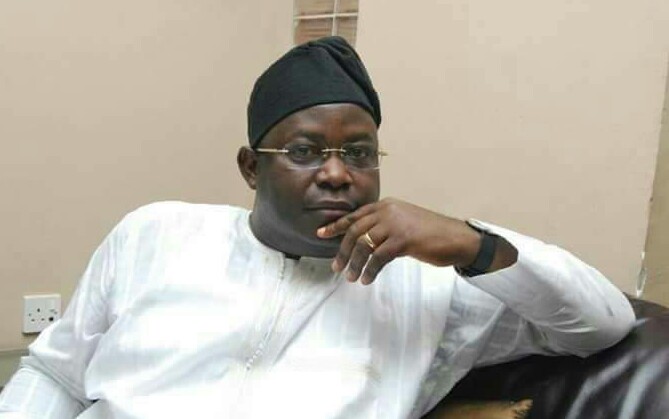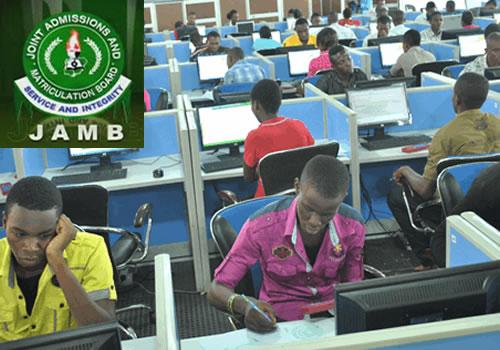News
ThursdayRapAround: Nigeria’s NASS And Their Endless List Of Probes

By Michael Ayotunde
Of what value is an exercise embarked upon without corresponding output in the form of meaningful results?
Or at best, why would a statutory institution initiate a process with clearly defined terms of reference; with all the paraphernalia of office, ‘attaches’’ left, right, front and back, allowances and provisions for logistics – only for the exercise to end in futility, or like in the Nigerian parlance, pushed under the carpet?
It’s unimaginable that an important institution of the government that is saddled with vital responsibilities, and being maintained with taxpayers’ money would turn around to ‘circumvent’ the essence of governance with their deliberate act of negligence and or dereliction of duty.
With the recent macabre dance at the heart of the nation’s judicial architecture, experts are of the view that the nation’s judicial system was not designed to dispense justice; rather, it was structured to rationalize impunity in the country and nothing more.
Little wonder the country is in tatters – no thanks to barrage of beer-parlour injunctions, and conflicting, controversial judgements here and there. In the dispensation of justice, sentiments have always taken the better part of some of our learned colleagues, such that common sense no longer mean anything anymore.
The executive arm, to say the least, is not competing for laurels here, since it’s the chief custodian of impunity in Nigeria.
But for the National Assembly, it’s kleptomaniac in nature. For years, they have successfully perfected the art of promise, constituting, hyping and dumping of probes at will. In fact, it is safe to establish that the National Assembly is addicted to ‘Probing and Dumping’ of probes at every twist and turn.
The list is endless.
Indeed, many probes have been pending – or even abandoned – by the various panels given the tasks. Yet, hardly does the House sit without resolving to carry out one investigation or the other. It is a similar case in the Senate.
Since the 9th National Assembly was inaugurated on June 11, 2019, the House alone has been handling various cases bothering on public institutions and funds. Close watchers of the probes have stated that leakages in the system could be saved if only the legislature has been carrying out its oversight duties efficiently and effectively.
Several members of the National Assembly have by way of motions raised the alarm over the alleged corruption and mismanagement of public resources, leading to investigations by the usual ‘standing and sitting’ committees. The panels either promptly carry out the probes and present their reports or dither on the assignment till the Assembly winds down or the issues are overtaken by events.
While it is part of the oversight function of the National Assembly to carry out the various probes, Nigerians are, however, divided over how much the probes have achieved in saving the economy or fixing the rot in the system.
Probes, probes and probes everywhere.
The list can, however, not be exhausted:
* Probe on Petroleum Products Pricing Regulatory Agency for allegedly failing to remit revenue totalling N1.343tn to the Federal Government coffers.
* November 27, 2019, the House started an investigation of the collapse of the Delta Steel Company built with $1.89bn.
* On December 11, 2019, the House started an investigation of the decadence of infrastructure at the Apapa and Tin Can Island Ports and the roads leading to the ports in Lagos, causing Nigeria to lose N600bn revenue monthly.
* On December 12, 2019, the House resolved to investigate Federal Government MDAs over fraudulent insurance policies, which “tremendously promote money laundering and illicit financial flow to the tune of several billions of naira in the insurance sector.”
* On December 17, 2019, the House started investigation of the Nigerian Social Insurance Trust Fund over alleged illegal expenditures, especially the about N2.3bn spent on staff training without approval.
* Fuel subsidy regime probe from 2017 to 2021
Jonathan’s unceremonious outburst
Former president, Dr. Goodluck Jonathan, while speaking recently in Abuja at a public presentation of the book, finally bared his mind on the controversial 2014 report of the National Conference, which he convocated.
He said the 1999 Constitution would have been amended by the National Assembly to reflect the recommendations made by the conference and that with elections around the corner in 2015, his intentions would have been misconstrued by a section of Nigerians.
Jonathan noted that he was optimistic that winning the 2015 election would afford him the opportunity of implementing the report of the confab, which sadly never happened; adding, “the essence of the 2014 Confab was to encourage a healthy conversation among the populace, address the queries agitating the mind of Nigerians and mend fences, where possible…My message to the conference was clear; that they could discuss everything, save for the sovereignty of our great country, Nigeria. I believe, like most Nigerians, that we are better off as one united country.”
The former President partly blamed Sokoto State Governor, Aminu Tambuwa who as the then Speaker of the House, had defected to the opposition party and being one of those opposed to restructuring.
This goes to show that procrastination is an extremely dangerous concept. This is more so where certainty of actions and policies are subject to several factors that are beyond one’s control.
This should serve as a lesson to those in authority – that the need to serve common good should be paramount in whatever or wherever they found themselves.
With the current realities in Nigeria today, it is doubtful if the likes of Jonathan and others before him will ever forgive them themselves – for whatever actions or inactions (while in office) which could have change for good the suffering people are going through today – were they to be alive to their responsibilities.
A stitch in time, they say, saves nine.
The regrets of today, sure won’t change the hand of time; and it won’t remedy what might have gone wrong. It can only serve as a learning curve – to help safeguard the future.
-

 News4 days ago
News4 days agoUpdated: Oyo Police Parade Arrested Yoruba Nation Agitators
-

 News3 days ago
News3 days agoJust In: Adeleke Appoints Former Osun Commissioner For Finance, Bolorunduro Chairman Of Living Trust Mortgage Bank
-

 News4 days ago
News4 days ago‘21 Chibok Girls Return With 34 Kids; 48 Parents Die Of Trauma’
-

 News1 day ago
News1 day agoBreaking: JAMB Directs CBT Centres To Arrest Parents Found Near Facilities During UTME Exercise



